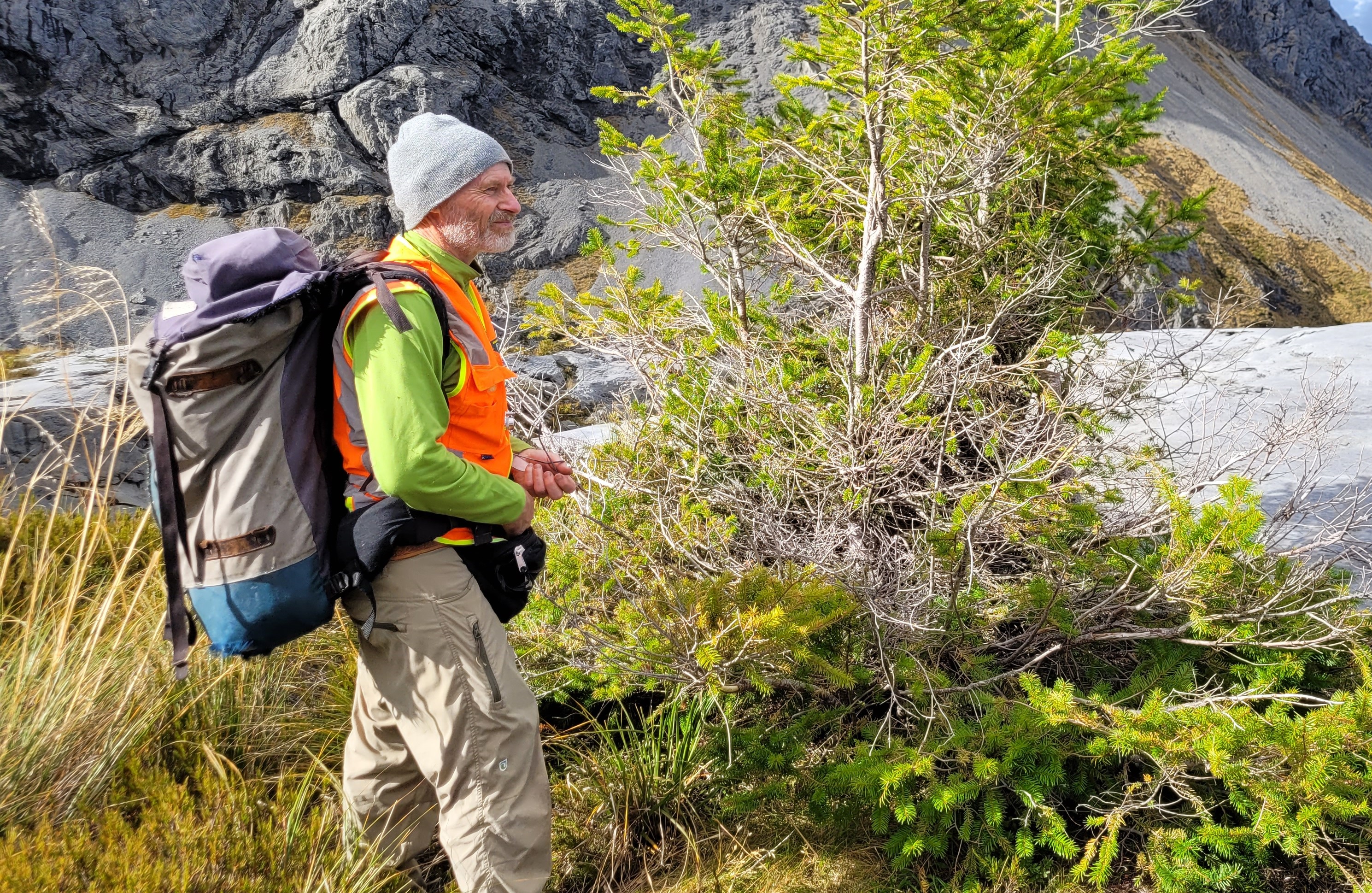Conservational song leader honoured


Newly minted King’s Service Medal recipient Shannel Courtney has cultivated four decades in conservation. Photo: Laura Parks.
Five Nelson Tasman locals have been awarded 2025 New Years Honours. Throughout Tuesday, Nelson App shares each of their stories.
It was as pleasantly surprising as his native flora discoveries.
Pōhara-based Department of Conservation (DOC) now contractor Shannel Courtney has been awarded a King’s Service Medal in the 2025 New Year Honours for his four-decade contribution to the conservation of Aotearoa’s indigenous plants.
His honour also recognised his service to choral music with the Nelson a cappella group, World Mosaic Choir.
Shannel’s conservation work in Nelson Tasman germinated in 1986 after working on conservation projects across the motu for DOC’s predecessors like the Department of Lands and Survey.
He had obtained a plant ecology degree from the University of Canterbury three years earlier.
Shannel’s fertile career with DOC includes collaborating with taxonomists on published papers to formally name 11 species and five subspecies.
These included forget-me-not, native daphne, native geranium, daisies, māhoe and the world’s smallest lobelia which is confined to a handful of northeast Nelson locations.
“Most of these newly named species are very rare, some species don't have a common name at all, people just won't know what they are, but mostly we call them herbs, and a lot of them are alpine,” he says.
“A lot of them have turned out to be quite threatened, so we're actively managing them.”
Shannel has also discovered several new native flora species and rediscovered a presumed extinct plant in Molesworth in 2015.
“Over the years getting around the northern South Island with my work, I got to know the flora pretty well, so it was clear when I saw things that I'd never seen before,” he says.
“One of the big pieces of work was to record the natural values of Molesworth station, and one the upshots was the discovery of pygmy goosefoot, which I think was last seen in the 1940s.
“It meant we could take one of our species off the extinct list.”
Shannel has also played a role in the DOC-administered New Zealand Threat Classification System for over 20 years, producing publications for councils, ports and the Environment Court which detail the threat statuses of flora.
He has also worked over the past eight years to create a catalogue for local iwi containing the indigenous plants for their rohe.
“It was quite a good way for them to have active involvement in protecting what they consider their taonga,” he says.
In 1989, Shannel co-founded the Nelson Botanical Society and remains an active committee member, leading several day trips and camps for the society annually.
“The biggest thrill for me is to get people to discover just the amount of amazing diversity that we have around us and how special it is, if you can put a few stories behind the plants, it really helps people connect with them,” he says.
“That follows through to my mentorship role over the years with bio rangers in DOC, I found that really rewarding as well.”
Shannel also helped establish a herbarium at Nelson’s DOC office in the mid-2000s and it currently keeps 6000 samples of the Top of the South Island’s native plants.
He has also worked with Wakatū Incorporation to establish a library of plants indigenous to the rohe of its iwi.
In 2008, Shannel was awarded the Loder Cup, New Zealand’s most prestigious conservation award, for his professional and personal commitment to protecting threatened indigenous plant life.
He was also bestowed a Lifetime Achievement Award from the New Zealand Plant Conservation Network in 2024.
Shannel has also substituted the bird song for choir notes as a World Mosaic Choir member since the early 2000s, and the current song leader of the group has organised community events, workshops and regional performances.
“It’s a really great contrast… it’s the magic of creating something so every person you know is contributing to a song,” he says.
“The proudest moment is when we actually perform to an audience, we can give them that pleasure.”
